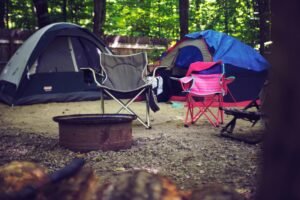Comprehensive Guide of Studying History
Overview
Studying history is an intellectually stimulating hobby that involves the exploration and analysis of past events, societies, and cultures. This hobby allows individuals to gain insights into how historical contexts shape the present and influence future developments. Enthusiasts often delve into various periods, such as ancient civilizations, the Middle Ages, or modern history, examining political, social, economic, and cultural aspects. Studying history can take many forms, including reading books, watching documentaries, visiting museums, and participating in discussions or online forums. It fosters critical thinking, enhances understanding of human behavior, and cultivates a sense of connection to the past, making it a rewarding and enriching pursuit.
History
The study of history has roots that trace back to ancient civilizations, where early historians like Herodotus and Thucydides documented events and analyzed their significance. Over the centuries, the discipline has evolved, with various methodologies and approaches emerging. The Renaissance marked a renewed interest in classical texts and historical inquiry, leading to the development of modern historiography. The 19th and 20th centuries saw the rise of professional historians and the establishment of history as an academic discipline, with universities offering specialized programs. Today, the study of history encompasses a wide range of topics, including social history, economic history, and cultural history, reflecting the diverse interests of scholars and hobbyists alike.
Popularity and Demographics
Studying history is a popular hobby among diverse demographics, appealing to individuals of all ages and backgrounds. Many people are drawn to history due to its relevance in understanding contemporary issues and societal changes. According to surveys, a significant portion of the population engages in historical research, whether through reading, attending lectures, or participating in historical reenactments. This hobby is particularly popular among students, educators, and retirees, with many community organizations and clubs dedicated to historical exploration. The advent of digital resources, such as online archives, podcasts, and social media groups, has further expanded access to historical content, fostering a vibrant community of history enthusiasts who share their passion and knowledge with others.
Sponsored Hobbyists and Vendors
Become a Sponsor!
Affiliate Disclaimer: Throughout some sections below, Hobby Spotlight may suggest some tools, equipment or material using affiliate links. By purchasing any of those items, Hobby Spotlight may earn a small commission. This helps fund our website, content and services without directly charging our users.
Getting Started
Essential Historical Resources:
Beginner
- History Books: Introductory books covering various historical topics.
- Notebook: A notebook for taking notes and jotting down thoughts.
- Documentary DVDs: Documentaries that provide visual insights into historical events.
- Online Course Subscription: Access to online courses focused on different historical periods.
- Historical Maps: Maps that illustrate historical events and geographical changes.
Intermediate
- Research Database Access: Subscription to academic databases for in-depth research.
- Archival Quality Paper: Special paper for preserving notes and documents.
- Digital Voice Recorder: For recording interviews or lectures related to historical research.
- Historical Document Reproductions: Reproductions of significant historical documents for study.
- History Research Guide: A comprehensive guide to conducting historical research.
Basic Requirements and Initial Setup:
- Access to Resources: A variety of books, articles, and online databases are essential for comprehensive research. Libraries and academic journals can provide valuable information.
- Note-taking Tools: Having a reliable system for taking notes, whether digital or traditional, helps in organizing thoughts and findings effectively.
- Time Management: Setting aside dedicated time for study and research is crucial to maintain focus and progress in understanding historical contexts and events.
Fundamental Skills to Learn:
- Critical Thinking: Analyzing sources and arguments critically to distinguish between fact and interpretation.
- Research Skills: Knowing how to locate, evaluate, and synthesize information from various sources.
- Writing Proficiency: Developing the ability to articulate thoughts clearly and coherently in written form, including essays and reports.
- Chronological Understanding: Grasping the timeline of events and their interconnections to better understand historical narratives.
- Contextual Analysis: Understanding the social, political, and economic contexts that shape historical events and figures.
Sub-Hobby/Common Activities:
- Genealogy Research: Tracing family histories and understanding ancestral backgrounds through various records.
- Historical Reenactment: Participating in events that recreate historical events or periods, often involving costumes and activities from that time.
- Visiting Historical Sites: Exploring museums, monuments, and heritage sites to gain firsthand experience of history.
- Documentary Filmmaking: Creating films that explore historical topics, combining research with visual storytelling.
- Participating in History Forums: Engaging in discussions with other history enthusiasts to share insights and perspectives on various topics.
Terminology:
- Primary Source: Original documents or artifacts created during the time under study, such as letters, photographs, or official records.
- Secondary Source: Works that analyze, interpret, or summarize primary sources, including books and articles written by historians.
- Historiography: The study of how history has been written and interpreted over time, including different perspectives and methodologies.
- Chronology: The arrangement of events in the order of their occurrence, essential for understanding historical timelines.
- Contextualization: Placing events within their broader historical, social, and cultural contexts to enhance understanding.
- Thesis Statement: A clear, concise statement that presents the main argument or claim of a historical analysis or essay.
- Interpretation: The act of explaining the significance or meaning of historical events or sources.
- Artifact: Any object made or used by humans, typically studied by historians to understand past cultures.
- Oral History: The collection and study of historical information through recorded interviews with individuals who experienced past events.
- Revisionism: The re-examination of historical facts and interpretations, often challenging established narratives.
Advanced Topics and Specializations
Advanced Tools and Equipment:
- Digital Archiving Software: Software for organizing, preserving, and sharing historical documents and artifacts digitally.
- High-Quality Scanner: A scanner with high resolution for digitizing historical documents and photographs with clarity.
- Field Research Kit: Includes tools for conducting field research, such as notebooks, GPS devices, and measuring tools.
- Historical Map Collection: A curated collection of historical maps for studying geographical changes over time.
Advanced Projects and Achievements:
- Historical Research Projects: Conducting in-depth research on specific historical events or figures, culminating in published papers or presentations at academic conferences.
- Documentary Creation: Producing documentaries that explore historical themes, utilizing archival footage, interviews, and expert commentary to educate viewers.
- Historical Reenactments: Participating in or organizing reenactments of significant historical events, bringing history to life through costumes, props, and performances.
Advanced Techniques and Methods:
- Primary Source Analysis: Developing skills to critically evaluate and interpret primary sources such as letters, diaries, and official documents to gain insights into historical contexts.
- Oral History Methodology: Utilizing interviews with individuals to collect personal narratives and experiences, preserving history through firsthand accounts.
- Digital Humanities Tools: Employing software and online platforms for data visualization, mapping historical events, and creating interactive timelines.
Specializations and Niche Areas:
- Military History: Focusing on the study of wars, battles, and military strategies, including the impact on societies and cultures.
- Cultural History: Exploring the social, cultural, and artistic developments throughout history, examining how they shape human experiences.
- Local History: Investigating the history of specific regions or communities, often involving archival research and community engagement.
- Public History: Working in museums, historical sites, and educational programs to make history accessible and engaging for the public.
- Environmental History: Analyzing the interactions between humans and the environment over time, focusing on ecological changes and their historical significance.
Future Trends and Innovations:
- Increased use of virtual reality (VR) to create immersive historical experiences and educational tools.
- Growing interest in interdisciplinary approaches that combine history with fields like sociology, anthropology, and technology.
- Expansion of online platforms for collaborative historical research and sharing of resources among enthusiasts and scholars.
- Emphasis on inclusive history that highlights underrepresented voices and perspectives.
- Utilization of big data and analytics to uncover patterns and trends in historical research.
Technology Integrations:
- Online Archives and Databases: Accessing vast collections of historical documents and resources through digital platforms.
- Social Media for Historical Engagement: Using platforms like Twitter and Instagram to share historical content and connect with a broader audience.
- Podcasting: Creating and listening to history-focused podcasts that explore various topics and engage listeners in discussions.
- Mobile Apps for History Learning: Utilizing apps that provide historical information, walking tours, and interactive experiences.
- Digital Mapping Tools: Employing GIS technology to visualize historical events and trends geographically.
Further Learning and Resources
Books:
- A Little History of the World by E.H. Gombrich: This engaging book provides a concise overview of world history, making it accessible and enjoyable for beginners.
- The History Book by DK: A visually stunning book that presents key events and figures in history in an easy-to-understand format, ideal for newcomers.
- Sapiens: A Brief History of Humankind by Yuval Noah Harari: This thought-provoking book explores the history of humankind from the Stone Age to the present, offering insights into our species’ development.
- Guns, Germs, and Steel by Jared Diamond: An in-depth analysis of the factors that have shaped human societies, this book challenges readers to think critically about history and its complexities.
- The Histories by Herodotus: Often referred to as the ‘Father of History,’ Herodotus provides a detailed account of the Greco-Persian Wars, blending history with storytelling.
- The Structure of Scientific Revolutions by Thomas S. Kuhn: This influential work examines the history of science and how paradigm shifts occur, making it a challenging yet rewarding read for advanced students of history.
Websites:
- History.com, https://www.history.com – A comprehensive resource for historical articles, videos, and educational content covering various topics in history.
- The British Museum, https://www.britishmuseum.org – Offers access to a vast collection of historical artifacts and exhibitions, along with educational resources.
- National Archives, https://www.archives.gov – The official archive of the U.S. government, providing access to historical documents and records.
- Smithsonian Institution, https://www.si.edu – A group of museums and research centers that offer a wealth of information on American history and culture.
- World History Encyclopedia, https://www.worldhistory.org – A non-profit organization that provides articles, videos, and educational resources on world history topics.
Courses:
- Coursera – The Modern World, Part One: Global History from 1760 to 1910, https://www.coursera.org/learn/modern-world – An introductory course exploring global history during a transformative period.
- edX – The Age of Sustainable Development, https://www.edx.org/course/the-age-of-sustainable-development – A course that examines historical development in the context of sustainability.
- FutureLearn – A History of Royal Fashion, https://www.futurelearn.com/courses/a-history-of-royal-fashion – Explore the history of royal fashion and its impact on society.
- Udemy – History of Ancient Egypt, https://www.udemy.com/course/history-of-ancient-egypt/ – A detailed course focusing on the civilization of Ancient Egypt, suitable for beginners.
- Skillshare – The History of Art: A Beginner’s Guide, https://www.skillshare.com/classes/The-History-of-Art-A-Beginners-Guide/123456 – An engaging course that introduces the history of art and its evolution through different periods.
Content Creators and Community
Content Creators:
- History Buffs (YouTube): Focuses on reviewing historical films and documentaries, providing insights into their accuracy and historical context.
- The History Guy (YouTube): Delivers engaging stories about lesser-known historical events and figures, making history accessible and entertaining.
- OverSimplified (YouTube): Uses humor and animation to explain complex historical events in a simplified and engaging manner.
- Lindybeige (YouTube): Offers a unique perspective on history, focusing on military history, weaponry, and historical reenactments.
- Tasting History (YouTube): Combines cooking with history by recreating historical recipes and exploring their origins.
- History Extra (Podcast): The podcast from the team behind BBC History Magazine, featuring interviews with historians and discussions on various historical topics.
- History Channel (Website): A comprehensive resource for articles, videos, and documentaries covering a wide range of historical topics.
Online Forums and Social Media Groups:
- Reddit – /r/AskHistorians: A community where users can ask questions and receive detailed answers from knowledgeable historians.
- Facebook History Groups: Various groups dedicated to specific historical periods or events where enthusiasts share articles, discussions, and resources.
- History Buffs (Discord): A platform for live discussions, sharing resources, and engaging with fellow history enthusiasts.
- Instagram Hashtags (#History, #HistoricalFigures): Follow these hashtags for daily posts featuring historical facts, images, and discussions.
- Pinterest Boards: Explore boards dedicated to historical events, figures, and timelines, providing visual inspiration and resources.
Local Clubs and Organizations:
- Historical Societies: Many towns and cities have local historical societies that host events, lectures, and discussions about local history.
- University History Departments: Often offer public lectures, workshops, and events open to history enthusiasts.
- Living History Groups: Organizations that focus on reenacting historical events and educating the public about specific time periods.
- Book Clubs: Many book clubs focus on historical literature, providing a space for discussion and exploration of historical themes.
- Meetup Groups: Platforms like Meetup.com host local history clubs and discussion groups for enthusiasts to connect and share knowledge.
Events, Meetups, and Conventions:
- History Conferences: Various academic and public conferences focus on specific historical themes, featuring lectures and networking opportunities.
- Historical Reenactments: Events where participants recreate historical battles or events, providing immersive experiences for attendees.
- Local History Fairs: Community events showcasing local history through exhibits, presentations, and activities.
- Book Festivals: Many festivals feature authors discussing historical topics, providing insights and book signings.
- History Film Festivals: Events dedicated to screening historical documentaries and films, often followed by discussions with filmmakers and historians.
Associated Hobbies
- Archaeology: This hobby involves the study of human history through the excavation and analysis of artifacts, structures, and other physical remains. Enthusiasts often participate in digs or volunteer with local archaeological societies.
- Genealogy: Many history buffs enjoy tracing their family lineage and discovering their ancestors’ stories. This can involve researching historical records, DNA testing, and connecting with distant relatives.
- Historical Reenactment: Participants in this hobby recreate historical events, often dressing in period-appropriate clothing and using authentic tools and techniques. This immersive experience helps bring history to life.
- Collecting Antiques: Collectors often seek out historical items, such as furniture, coins, or documents, that provide insight into past cultures and lifestyles. This hobby can involve extensive research and networking with other collectors.
- Writing Historical Fiction: Many history enthusiasts enjoy crafting stories set in historical contexts, blending factual events with fictional narratives. This allows for creative expression while exploring historical themes and characters.
- Visiting Museums: Exploring museums dedicated to history can be a rewarding hobby. Many history lovers enjoy learning about different cultures, time periods, and significant events through exhibits and guided tours.
- Participating in History Forums: Engaging in online or local history discussion groups allows enthusiasts to share knowledge, debate interpretations, and connect with like-minded individuals who share a passion for history.
- Documentary Filmmaking: Some history buffs take their passion to the next level by creating documentaries that explore historical events, figures, or themes. This hobby combines research, storytelling, and technical skills in filmmaking.
Cost and Budgeting
Initial Investment and Ongoing Costs:
- Initial Investment: The cost to start studying history can be quite low, as it primarily involves purchasing books and resources. A basic collection of introductory history books can range from $50 to $200. If you choose to enroll in online courses or attend lectures, costs can increase, with many courses ranging from $100 to $500 depending on the institution and depth of study.
- Ongoing Costs: Ongoing costs may include subscriptions to academic journals, which can range from $20 to $100 annually, and additional books or resources as you delve deeper into specific topics. Attending seminars, workshops, or conferences can also incur costs, typically ranging from $50 to several hundred dollars, depending on the event.
Budget-Friendly Options:
- Library Resources: Utilize your local library to access a wide range of history books, documentaries, and academic journals for free.
- Online Courses: Many platforms, such as Coursera and edX, offer free or low-cost history courses from reputable universities, allowing you to learn at your own pace.
- Used Books: Consider purchasing used history books from thrift stores, online marketplaces, or local used bookstores, which can significantly reduce costs.
Where to Buy:
- Bookstores: Local and chain bookstores often have a dedicated history section where you can find both new and used books.
- Online Retailers: Websites like Amazon, AbeBooks, and ThriftBooks offer a vast selection of history books, often at discounted prices.
- Academic Publishers: For more specialized texts, consider purchasing directly from academic publishers or university presses, which often have sales or discounts for students.
Money Making
How to Turn the Hobby into a Profession or Side Hustle:
- History Teacher: With a passion for history, you can pursue a career as a history teacher at a middle school, high school, or even at the college level. This role allows you to share your knowledge and enthusiasm for historical events, cultures, and figures with students, inspiring the next generation to appreciate the past.
- Historical Consultant: Many industries, including film, television, and publishing, require historical accuracy in their projects. As a historical consultant, you can provide expertise on specific time periods, events, or cultural practices, ensuring that productions are authentic and well-researched.
- Author or Historian: If you enjoy writing, consider becoming an author or historian. You can write books, articles, or blogs focused on historical topics that interest you. This could range from academic research to popular history, allowing you to share your insights and findings with a wider audience.
- Museum Curator or Educator: Working in a museum can be a fulfilling way to turn your love for history into a career. As a curator, you would be responsible for acquiring, managing, and displaying historical artifacts. Alternatively, as an educator, you could develop programs and tours that engage visitors and enhance their understanding of history.
- Tour Guide: If you enjoy interacting with people and sharing stories, becoming a tour guide can be a rewarding side hustle. You can lead historical tours in your local area, focusing on significant landmarks, events, or figures. This role allows you to combine your knowledge of history with your passion for storytelling, providing an engaging experience for tourists and locals alike.
Benefits and Enjoyment
Physical, Mental, and Social Benefits:
- Cognitive Engagement: Studying history stimulates critical thinking and analytical skills. It encourages individuals to evaluate sources, understand context, and draw connections between events, enhancing cognitive abilities.
- Mental Well-being: Engaging with historical narratives can provide a sense of perspective and understanding of the human experience. This can lead to improved mental health by fostering empathy and reducing feelings of isolation through connection with past societies.
- Social Interaction: History study often involves discussions, group projects, and community events. This fosters social connections and allows individuals to share insights and perspectives, creating a sense of belonging among history enthusiasts.
Success Stories and Inspirational Examples:
- David McCullough: A renowned historian and author, David McCullough has inspired countless individuals through his engaging storytelling and accessible writing style. His works, such as ‘1776’ and ‘John Adams’, have brought history to life for readers and have won multiple awards, including Pulitzer Prizes.
- Ken Burns: As a documentary filmmaker, Ken Burns has made significant contributions to the public understanding of American history. His films, such as ‘The Civil War’ and ‘Baseball’, have captivated audiences and sparked interest in historical topics, showcasing the power of visual storytelling.
- Simon Schama: A prominent historian and broadcaster, Simon Schama has made history engaging and relevant through his television series and books. His ability to connect historical events to contemporary issues has inspired many to appreciate the importance of history in understanding the present.
Ways to Enjoy and Grow in the Hobby:
- Visit Historical Sites: Exploring museums, battlefields, and historical landmarks can deepen your understanding of history. Engaging with artifacts and exhibits provides a tangible connection to the past and enhances your learning experience.
- Join History Groups or Clubs: Connecting with others who share your passion for history can enrich your knowledge and provide opportunities for discussion and collaboration. Many clubs host lectures, book discussions, and field trips that can enhance your enjoyment of the hobby.
- Engage in Research Projects: Delve deeper into specific historical topics that interest you. Conducting research, whether through reading, writing, or even creating presentations, can help you develop expertise and share your findings with others.
Challenges and Solutions
Common Challenges Faced by Hobbyists:
- Access to Resources: Studying history often requires access to books, articles, and primary sources, which can be limited depending on one’s location or financial situation. Libraries may not always have the necessary materials, and online resources can sometimes be behind paywalls.
- Time Management: With busy schedules, many history enthusiasts struggle to find enough time to dedicate to their studies. Balancing work, family, and other commitments can make it difficult to immerse oneself in historical research.
- Information Overload: The vast amount of historical information available can be overwhelming. Hobbyists may find it challenging to discern credible sources from unreliable ones, leading to confusion and frustration.
Tips for Overcoming These Challenges:
- Utilize Online Libraries and Archives: Many universities and institutions offer free access to digital archives and online libraries. Take advantage of these resources to find primary sources and scholarly articles without the need for physical access.
- Create a Study Schedule: Set aside specific times each week dedicated to studying history. Treat these sessions as important appointments to ensure you prioritize your passion for the subject.
- Focus on Specific Topics: Instead of trying to cover everything, choose specific historical periods or events that interest you the most. This focused approach can help reduce information overload and make your studies more manageable.
Safety Considerations and Best Practices:
- When conducting research, especially in archives or libraries, be respectful of the materials and follow any guidelines provided by the institution.
- Ensure that you are using credible sources by cross-referencing information with established historical texts and peer-reviewed articles.
- Take regular breaks during study sessions to avoid fatigue and maintain focus, especially when working on complex topics.
- Engage with local history groups or online forums to share insights and gain different perspectives, while being respectful of diverse opinions.
- Practice good digital hygiene by safeguarding your personal information when accessing online resources and participating in discussions on history-related platforms.
Conclusion and Encouragement
Recap of Key Points:
- Studying history allows individuals to understand the past, providing context for current events and societal changes.
- This hobby can enhance critical thinking skills, as it encourages analysis of sources, interpretation of events, and understanding of different perspectives.
- History is a vast field, encompassing various topics such as ancient civilizations, modern history, cultural studies, and more, allowing for a personalized exploration.
- Engaging with history can foster a sense of identity and belonging, as it connects individuals to their heritage and the stories of those who came before them.
- Studying history can be a social activity, with opportunities to join clubs, attend lectures, or participate in discussions, enriching the experience through shared knowledge.
Encouragement to Start and Enjoy the Hobby:
- Anyone can start studying history, regardless of background or education. Libraries, online resources, and documentaries make it easy to access information and begin your journey.
- Exploring history can be incredibly rewarding, as it opens up new perspectives and helps you understand the complexities of human behavior and societal development.
- Consider joining local history groups or online forums to connect with like-minded individuals. Sharing insights and discussing findings can enhance your understanding and enjoyment of the subject.
Final Tips and Motivational Thoughts:
- Stay curious and open-minded. History is filled with surprises, and approaching it with a willingness to learn can lead to fascinating discoveries.
- Document your findings and thoughts in a journal or blog. This practice not only reinforces your learning but also allows you to share your passion with others.
- Remember that history is not just about dates and events; it’s about the stories of people. Focus on the human experience to make your study more relatable and engaging.

















